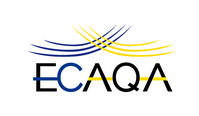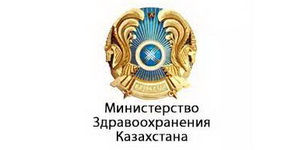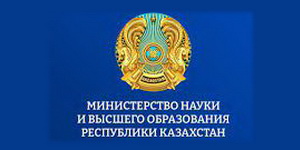ECAQA’s Expert Qualification Requirements
IMPORTANT:
An application for inclusion in the ECAQA’s register/database of accreditation experts can be sent to This email address is being protected from spambots. You need JavaScript enabled to view it. from a personal e-mail address. “Application for inclusion in the database of accreditation experts” should be the subject line.
The application is required to be prepared in an arbitrary form, addressed to Director General S.S. Sarsenbayeva, and accompanied by a curriculum vitae in Kazakh, English, and Russian.
If an applicant's inclusion in the ECAQA database of accreditation experts is confirmed, a letter requesting copies of their academic certificates, academic and professional credentials, specialist certificates, professional development certificates, and evidence of achievements will be sent to the applicant's e-mail address.
EURASIAN CENTRE FOR ACCREDITATION AND QUALITY ASSURANCE IN HIGHER EDUCATION AND HEALTH CARE (ECAQA) REQUIREMENTS FOR ACCREDITATION EXPERTS
ECAQA accreditation experts must:
- Have at least 5 years of professional and educational work experience (candidates for student experts must be chosen among active learners who show good academic performance);
- Have an academic degree or a MS, Ph.D. degree, a professional or skill category;
- Be experts in their profession (major subject);
- Ensure that their level of qualification is appropriate, taking into account:
- amendments to the legislation of the Republic of Kazakhstan in education (including state educational standards and requirements) and health care (concerning medical educational organisations),
- development of information and distance learning technologies;
- Constantly improve their professional and academic level;
- Have the analytical skills to systematise and summarise the information obtained during expert evaluations;
- Have good communication and teamwork skills;
- Actively participate in workshops, conferences, and other events organised by ECAQA.
ECAQA accreditation experts are required to know:
- The current State Programme in Education and Science of the Republic of Kazakhstan; the State Programme of the Republic of Kazakhstan in the field corresponding to the specialisation of an educational organisation under accreditation; the Labour Code; current regulations (orders, decrees, rules) in education (taking into account the level of education); as well as relevant documents regulating the procedure of accreditation in education;
- Mechanisms and tools for internal and external quality assurance in higher, postgraduate, and continuing education;
- Documents regulating the activities of ECAQA accreditation experts (Code of Conduct for External Review Experts, Statement and Obligation of Confidentiality, and Absence of Conflict of Interest);
- Main stages of the institutional accreditation of an educational organisation (taking into account the level of education) and the specialised accreditation of an educational programme;
- Contents of the ECAQA Standards for Accreditation and ECAQA Guides to Institutional and Specialised Accreditation;
- The scope and objectives of the Standards and Guidelines for Quality Assurance in the European Higher Education Area (ESG 2015);
- Approaches to evaluating compliance with ECAQA Standards for Accreditation in the course of the accreditation of an educational organisation and/or educational programme;
- Approaches to assessing the compliance of educational programmes with state requirements in education;
- Requirements for writing a review of education organisation and/or educational programme self-evaluation reports;
- Requirements for the content and execution of the report and recommendations of the External Expert Commission on the results of the external evaluation of an educational organisation and/or educational programme;
- Requirements for the execution of the documents prepared in the course of the peer review during the accreditation of an educational organisation and/or educational programme.
ECAQA accreditation experts must be able to:
- Apply their educational quality assurance knowledge and skills to their expert activities, taking into account the Standards and Guidelines for Quality Assurance in the European Higher Education Area (ESG 2015);
- Be agile, taking into account systematic improvements in the forms and methods of external evaluation;
- Determine whether the content of the training of students and graduates of an educational organisation and/or an educational programme complies with state educational standards and requirements;
- Establish the level of compliance of the institutional activities of an educational organisation and/or educational programme with the relevant ECAQA Standards for Accreditation. To this end, ECAQA conducts regular training of experts (the training programme is available at the following links below: http://www.ecaqa.org/obuchenie/programma-obucheniya-ekspertov, http://www.ecaqa.org/kz/sarapshylardy-okytu-bagdarlamalary);
- Analyse educational programmes (including curricula, academic course working programmes (modules), syllabuses and other materials that ensure the quality of training, spiritual and moral development of students, as well as academic internship and work experience internship programmes, course schedules, educational materials that ensure the implementation of an educational programme);
- Review the institutional self-evaluation report of an educational organisation and the self-evaluation report of an educational programme for compliance with the ECAQA Standards for Accreditation;
- Conduct a stakeholder survey (during an external visit) and process the results;
- Collect information through questioning, interviews and other methods of oral and written communication;
- Evaluate a variety of resources (physical facilities, educational, information and communication, human resources);
- Draw up the expert opinion (conclusion) of the External Expert Commission and other documents of expert evaluation;
- Draw up and generate a report on the results of an external peer review;
- Interact effectively and ethically with the accrediting agency, members of the External Expert Commission and employees of an educational organisation under accreditation during the external evaluation.








